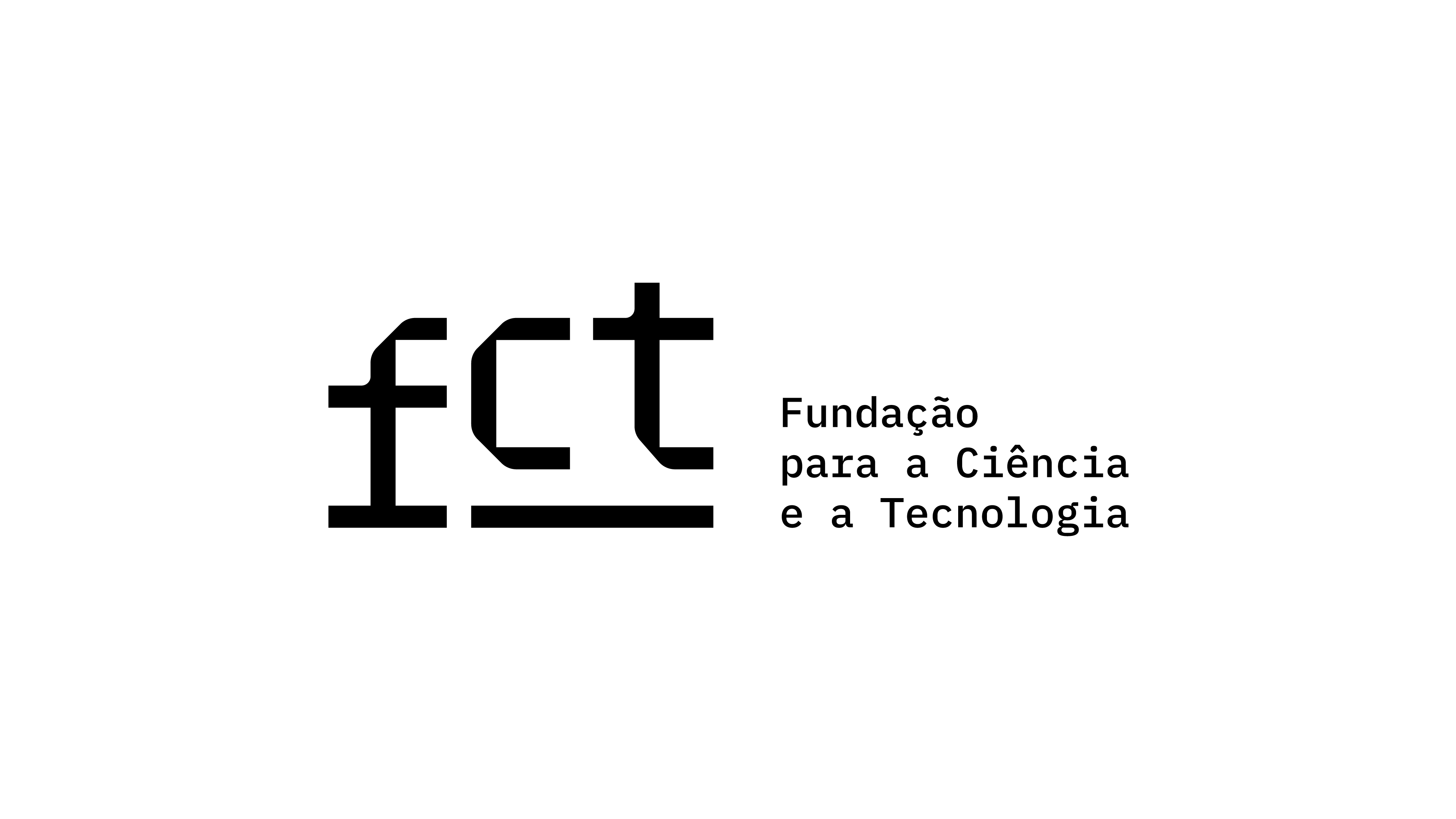Completed projects
B-RELIABLE (SAICT/30935/2017)
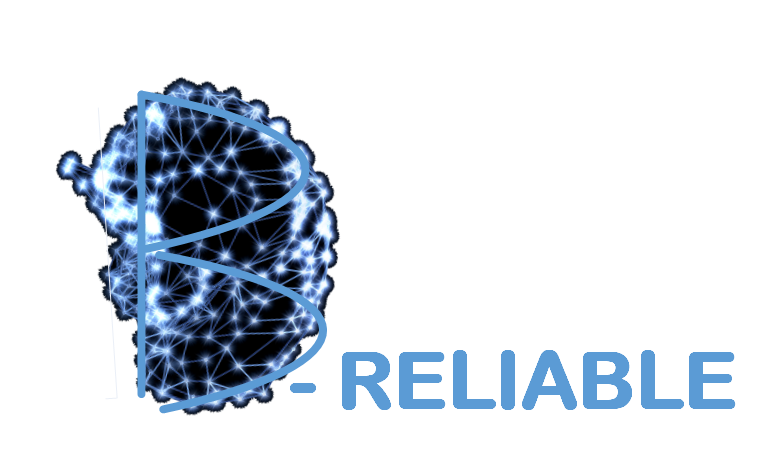 |
Title: Boosting reliability and interaction on brain-machine interface systems integrating automatic error-detection Partners: ISR, ICNAS, IPT Researchers: Gabriel Pereira Pires, Ana C. Lopes, Miguel Castelo-Branco, Urbano J. Nunes, João Paulo, Aniana Brito, M. Simões Date: 2018-06-20 - 2021-06-19 Status: completed url: project sheet / website |
| Description: Research & Development of new methods, theoretical and computational models and respective experimental validation, in human-centered systems, using brain-machine/computer interfaces (BMI/BCI). | |
INFANTE (CENTRO-01-0246-FEDER-000017)
 |
Title: Precursor for microsatellite constellations for maritime applications Partners: AST, GMV, HPS, Omnidea, Spin.Works, CEIIA, FCT-UNL, FEUP, INL, IPN, ISEP, ISQ, ISR Lisboa, IT, UBI Researchers: Carlos Ferreira Date: 2017-11-01 - 2020-10-31 Status: completed url: project sheet / website |
| Description: The project INFANTE consists of a joint venture for the development and in-orbit demonstration of a microsatellite as a precursor to a satellite constellation for maritime surveillance, Earth observation and communications between satellites and ground stations. The project is led by the company TEKEVER, but brings together other Portuguese companies (such as Active Space Technologies, GMV, HPS, Omnidea and Spinwork), reference R&D units such as CEIIA, FCT-UNL, FEUP, INL, IPN, ISEP, ISQ, ISR Lisboa, IT Aveiro and UBI, and also international organizations such as the Innovation Academy for Microsatellites from the Chinese Science Academy. | |
MOVTOUR (POCI-01-0145-FEDER-024068)
 |
Title: Turismo Culture with and for Society Partners: IPT, IPS, CES Researchers: Nuno Madeira, Luís M. L. Oliveira, Luís M. Grilo, Luís Mota Date: 2017-10-02 - 2019-04-02 Status: completed url: project sheet / website |
| Description: The project MovTour aims at contributing to the increase of scientific knowledge in the field of heritage enhancement as a tourism resource, by developing a model that allows for an integrated management of Cultural Heritage, Tourism and TIC. Moreover, it will include the local communities in the co-creation process. It also intends to have a real impact on land qualification, its people and its organizations. Due to the existing territorial framework, the need for more tourist culture knowledge is evident so as to value tourism fruition and heritage preservation. Something that is now scarce. Hence, the use of monitoring and real-time assessment technologies is relevant in determining the usage of cultural heritage in tourism terms. The interconnection between all the project’s parts becomes clear in the implementation of its five activities and multiple tasks which are all supported by a strong technological component: wi-fi detection, bplace solution, APP and Analytics solution. | |
VITASENIOR-MT (CENTRO-01-0145-FEDER-023659)
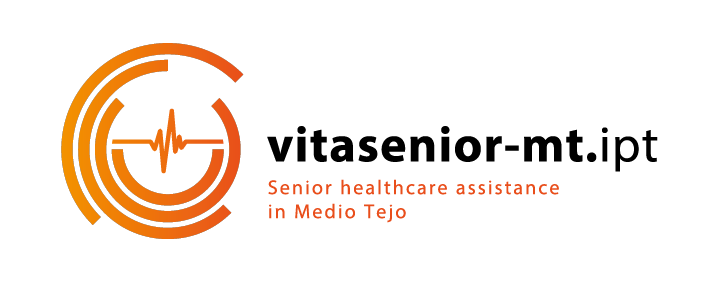 |
Title: Senior healthcare assistance in Medio Tejo Partners: IPT, IPC, CIMT Researchers: Gabriel Pereira Pires, Ana C. Lopes, António Manso, Luís A. Almeida, Luís M. L. Oliveira, Pedro Correia, Renato Panda, Diogo Mendes, Dário Jorge, Pedro Dias, Telmo Pereira, Tatiana Costa, Paulo Monteiro, Carla Grácio Date: 2017-09-27 - 2019-09-28 Status: completed url: project sheet / website |
| Description: The VITASENIOR-MT project aims to develop a telehealth solution to improve the health care of elderly people living alone in the region of Médio Tejo. This solution will do remote and local monitoring of biometric parameters of the elderly, as well as environmental parameters of their homes. The biometric variables include heart rate and temperature measurements collected automatically, by means of a bracelet, throughout the day. Blood pressure and blood glucose values will be measured by the senior’s own initiative. The environmental parameters include carbon monoxide and carbon dioxide measurements. A television channel with easy interaction allows the elderly to access biometric data, and automatically receive medical warnings and recommendations (based on biometric protocol and user profile). All data will also be available through Internet browser. In alarm situations, an automatic operational procedure will be triggered establishing communication to predefined entities. | |
LIBÉLULA (CENTRO-01-0145-FEDER-024052)
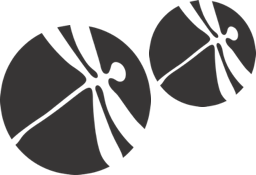 |
Title: A Mobile robotic surface water quality monitoring system Partners: IPT, IPL, CIMT Researchers: Pedro Granchinho, Manuel Barros, Carlos Ferreira, Henrique Pinho Date: 2017-09-25 - 2019-03-27 Status: completed url: project sheet |
| Description: The LIBÉLULA project aims to solve the need for monitoring span of surface water quality information in freshwater natural and artificial systems. Each mobile and robotic monitoring system units (LIBÉLULA) is made up of several sub-systems for the collection of relevant water quality data and their transmission in real time to a central monitoring unit. The data will make it possible to identify contamination (pollution) sources, functioning as a decision-making tool to trigger the necessary environmental protection mechanisms. | |
MOVIDA (CENTRO-01-0145-FEDER-023878)
 |
Title: MOVIDA: Physical Activity Monitoring Platform Partners: IPL, IPT, IPCB, CHLeiria, CMLeiria Researchers: Pedro Correia, Luís M. L. Oliveira, Rui Pinto Date: 2017-09-19 - 2019-03-20 Status: completed url: project sheet / website |
| Description: Chronic diseases prevention and management joint with rehabilitation programs establishes a true challenge to the health care community. Epidemiological studies point to an increased prevalence of cardiovascular and chronic diseases, and specifies the supervised physical activity as a strong tool to control the progression thereof. This project will create a global health community program, centered in a platform with a mobile App and a dashboard, aimed to monitor physical activity, being divided into 4 main modules, targeting several branches of the population. This program enables exercise prescription and monitor user’s performance and adherence, in metabolic diseases patients by (MOVIDA.cronos), to draw and follow a cardiac rehabilitation program (MOVIDA.eros), to track and quantify indoor movements (MOVIDA.domus), and also to access to a stratified training circuit, for maintain or improve fitness level (MOVIDA.polis). The project enrolls three academic partners and included research institutes, but also health and community stakeholders.. Students from engineering and health sciences will be integrated in the project, benefiting of this interdisciplinary environment. | |
EXOBIKE (CENTRO-01-0145-FEDER-24013)
 |
Title: Biomechanical Equipment for Restorative Therapy and Reabilitation Partners: IPC, IPT, ROVISCO PAIS, CASPAE 10 Researchers: Gabriel Pereira Pires, Luís Roseiro Date: 2017-09-18 - 2019-09-19 Status: completed url: project sheet / website |
| Description: The recent growth in the use of inertial sensors and their applicability in areas such as health, sports, navigation systems and aircraft / aerospace engineering is a phenomenon that can have significant impacts on the use of this technology. In addition to the low cost, small size and low power consumption, the inertial sensors have the ability to measure the intensity of physical quantities of a moving object without the need for external references. In the health area, particularly in monitoring, this type of sensor, has been under investigation in situations of support for physical rehabilitation and monitoring of the mobility of Parkinson’s and Alzheimer’s patients. The effectiveness of these sensors depends on the ability of the algorithms of gathering information from each of them and estimating more accurate information by sensor fusion algorithms. The fusion of inertial sensors data with other types of sensors such as force censors, allows devices to determine patients movement intentions. Moreover, the physical rehabilitation of patients that suffered accidents or traumatic actions frequently requires the use of physical structures to guide and sustain the required rehabilitation exercises. In these cases accurate motion and force controls are mandatory to prevent further injuries and allow patient rehabilitation. The proposed system enables the control of limb movements based on the sensor data and the patient intentions. The type and intensity of the training may be programmed by the medical staff that receives feedback from the wireless sensors. The patients receive a number of visual and physical stimulus generated by a virtual reality installation. | |
GEDITEC (POCI-01-0145-FEDER-023723)
 |
Title: Economic geography and territorial competitiveness: the error as learning factor and territorial innovation Partners: IPT, IPPortalegre, IPG, TagusValley Researchers: Sérgio Nunes, Luís M. Grilo, Ana Cláudia Pinto, Rita Anastácio, João Pedro da Luz, António Ventura Date: 2017-09-13 - 2019-03-15 Status: completed url: project sheet |
| Description: Main goals: To identify the main channels and mechanisms of territorial rooting of regional dynamics, in order to maximize the processes of locating companies and to minimize the disadvantages of relocation.In particular, it aims to study the Softinsa-IBM location process in IPT, in cooperation with the various local and regional actors (local government, IPT, business and industry associations, local development agencies, inter-community and community). | |
VALORBIO (POCI-01-0145-FEDER-23314)
 |
Title: Wastes valorisation through modular constructed wetlands for wastewater treatment Partners: IPT, IPC, IPPortalegre, Palser Researchers: Henrique Pinho, Isabel Nogueira, Marco Cartaxo, Valentim Nunes Date: 2017-07-17 - 2019-01-16 Status: completed url: project sheet |
| Description: The project VALORBIO aims to meet the need for treating and reusing wastewater and solid wastes from industries in the region, particularly from small and medium-sized industrial and agricultural activities. The project goals promote the involvement of industries in the social objective of protecting the environment and improving the quality of life of populations, in this case through a sustainable management of wastes and water resources. | |
AGA@4life (CENTRO-01-0145-FEDER-023369)
 |
Title: Comprehensive Geriatric approach to promote an active and healthy aging Partners: IPC, IPT, IPCB, CMLousã, ADIC Researchers: Gabriel Pereira Pires Date: 2017-03-18 - 2019-09-19 Status: completed url: project sheet |
| Description: Aging is a major societal challenge today. To match this cross-cutting issue to the various sectors of society, a project was designed aimed at promoting an active and healthy aging through the implementation of an intervention program based on the comprehensive geriatric assessment model (in Portuguese, Abordagem Geriátrica Ampla - AGA), also incorporating regional endogenous resources and the Health Sciences academia. The proposed AGA model is based on an individual, holistic and multidisciplinary assessment protocol, from which intervention strategies will be implemented, adjusted to each person?s needs, and aimed at preventing frailty and functional, cognitive and social decline of the elderly. Intervention actions will be focused on personalized exercise programs, nutritional education, cognitive stimulation, comorbidities monitoring, therapeutic counseling and global promotion of wellbeing. | |
HTPDIR (POCI-01-0247-FEDER-017644)
 |
Title: Human Tracking and Perception in Dynamic Immersive Rooms Partners: SketchPixel, IPT, UC Researchers: Gabriel Pereira Pires, Luís A. Almeida, Miguel Abreu Date: 2017-02-01 - 2021-01-31 Status: completed url: project sheet / website |
| Description: The potential of immersive reality systems and its broad range of application are well known. Despite the numerous systems available, there are currently no solutions that map static and dynamic obstacles in the physical space, and thereby users have to circulate in empty rooms or perform interaction with the immersive system in a very limited space. On the other hand, the tracking of the users restricts to the user’s head (or hands through the use of controllers), or when members and hands are also tracked, users need to stand in front of the RGB-D sensors -D (or other sensors) in a limited space. The motion tracking of the entire body in larger areas is usually solved using tags, with optical or radiofrequency modulation, placed at several points of the body, and using high frequency sensors to capture these tags. This leads to systems with low flexibility and extremely expensive. In this project it is proposed to develop a low cost system based on multiple RGB-D sensors (> = 4), providing simultaneously the tracking of the full body of the user at any point of the physical space (areas of tens of m ^ 2 ) considering unstructured and dynamic environments, gesture recognition for a more natural interaction with the immersive environment, as well as the interaction with the real world from the immersive world. This system finds a broad range of applications in many areas, namely, shopping area (real estate development, allowing to show final finishing/decoration in spaces), education (space simulation in classrooms, museums, showrooms), training in simulation (accident simulation, police training, social training). The possibility of adapting any space to a new dynamic virtual world, where the user can move within it, opens up a whole new range of solutions with a potential that can be exploited in several areas of activity. | |
SMART-MONITOR (P01395)
 |
Title: Development, implementation, characterization and deployment of an efficient power quality and quality of service measurement network in a smart city environment Partners: IT Researchers: Carlos Ferreira, Manuel Barros, Fernando Janeiro Date: 2016-12-01 - 2018-12-01 Status: completed url: website |
| Description: The SMART-MONITOR project includes the development, implementation, characterization and deployment of an efficient power quality and quality of service measurement network in a smart city environment. | |
AQUATROPOLIS (POCI-01-0247-FEDER-017888)
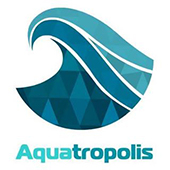 |
Title: Intelligent management system for sustainable aquacultures Partners: Compta, Domática, IPT, IPL, TagusValley, Algaplus Researchers: Pedro Granchinho, Manuel Barros, Carlos Ferreira Date: 2016-10-06 - 2018-08-31 Status: completed url: project sheet |
| Description: The main objective is to develop a disruptive solution for an intelligent, optimized and automated management of aquaculture operations, in order to promote the sustainable development of the aquaculture industry in the countries of the Atlantic region. Aquatropolis is in line with the principles advocated by the European strategy for Blue Growth, with the action plan for its implementation in the Atlantic Region, as well as with the Portuguese vision stated in the document “ENM”. The project is also lined up with the objectives of “European Digital Agenda”, supporting the principles of the Smart Cities on the mission to colonize in an efficient and sustainable way the 71% of the planet occupied by the ocean. More specifically, “Aquatropolis” will take advantage of a series of tools already available, namely: the Internet of Things (IoT), the “fog” computational systems available on the “cloud” (SaaS), the principles promoted by the “Sharing Economy Model” and technological innovation applied to precision monitoring instruments/sensors. | |
INDuGRID (ERANETLAC/0006/2014)
 |
Title: Efficient energy management in industrial microgrids with high penetration of PV technology Partners: NA Researchers: Mário Gomes, Paulo Coelho, Filipe Bandeiras Date: 2016-10-01 - 2019-12-31 Status: completed url: project sheet |
| Description: The INDuGRID project involves institutions from 4 countries (Portugal, Spain, Argentina and Peru), and is funded by the respective agencies of each country, being the IPT research team financed by FCT. The main objective of this project is the introduction of innovative solutions to the improvement of energy efficiency in industrial environments using intelligent electrical microgrids with high penetration of PV technology. | |
SMARTER FEST (NA)
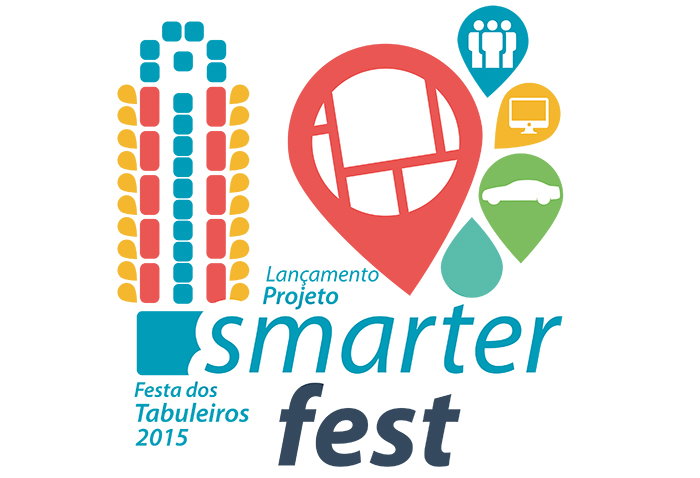 |
Title: Festa dos Tabuleiros 2015 Partners: NA Researchers: João Patrício, Luís M. L. Oliveira, Nuno Madeira Date: 2015-01-01 - 2015-06-01 Status: completed url: project sheet |
| Description: Applied research joint project with the Tomar municipality and IBM, to create a Smart City environment specifically targeted at the 2015 edition of the Trays Festival, a cultural event that takes place in the city every 4 years. The “Smarter Fest” was successfully implemented with the contribution of postgraduate students from the Analytics and Business Intelligence MSc Program from IPT. | |
RIGMEI (713RT0475/CYTED/2013)
 |
Title: Red Iberoamericana de Generación Distribuida y Microrredes Eléctricas Inteligentes Partners: UPC, IEE, UNIFEI, UTM, UIS, UVA, PUCP, IPT, INESC, ULA, INGSERCA, INDISE Researchers: Mário Gomes, Paulo Coelho, Filipe Bandeiras Date: 2013-01-01 - 2016-12-31 Status: completed url: project sheet / website |
| Description: Thematic network, consisting of 12 research groups from 8 countries (a total of 70 researchers) was a forum for discussion and exchange of scientific and technical knowledge, participated by specialists in distributed generation and electric microgrids | |




